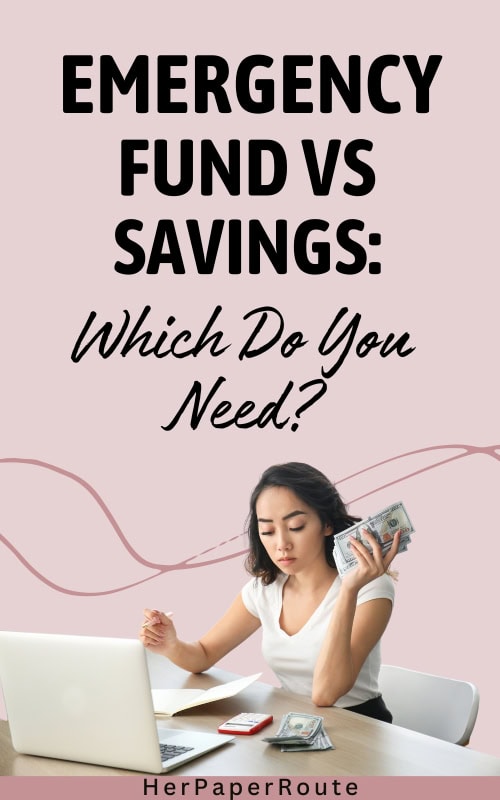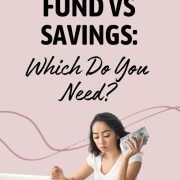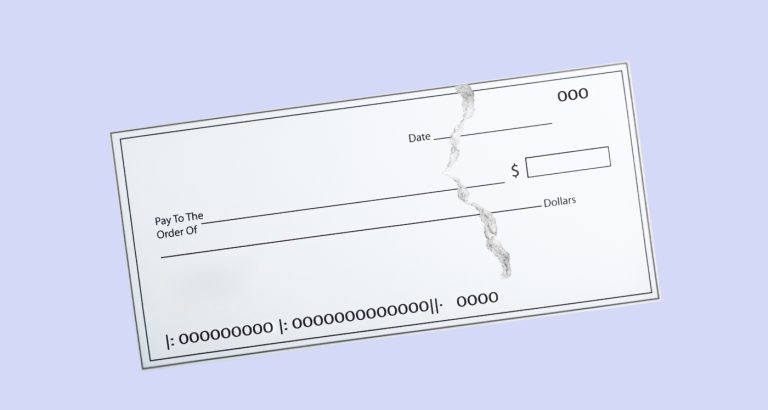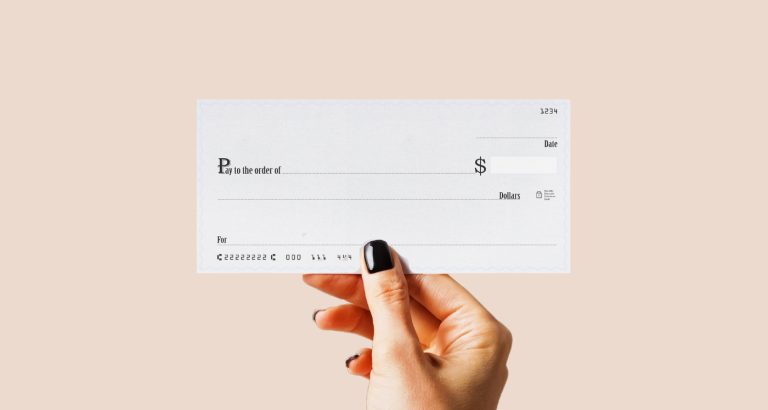Emergency Fund vs Savings: Which Do You Need?

Money is one of the most prominent causes of stress in the world. The amount of cash we have is said to cause us more worries than family, work, and even health.
This revelation gets a whole lot worse when you come to terms with the fact that this money-related stress isn’t only aggravating. It has also been linked to the negative impacts on longevity and health and contributes to poor decision-making.
As an affiliate partner of various brands and sponsored content, HerPaperRoute may earn commission on qualifying purchases. Disclaimer
Money-related stress is often caused by not handling our finances to the best of our abilities and having poor saving habits. That’s where emergency funds and savings accounts come in.
But which should you choose? When it comes down to starting an emergency fund vs savings, the answer is that you need them both but for different reasons.
Choosing Between an Emergency Fund and Savings
For starting out, an emergency fund is most important since it is the buffer between you being able to pay for unexpected emergencies rather than taking on debt. Savings accounts come into play after you have your emergency fund set up.
Below, I’ll go over the main differences between an emergency fund and savings account, the different types of savings, and the benefits of each.
What are the Differences Between an Emergency Fund and Savings?
An emergency fund and savings are often categorized as being completely different. This is a common misconception as an emergency fund is actually a form of savings.
An emergency fund is meant to be easily accessible and liquid. That’s why it’s always highly recommended for these funds to be placed in a savings account.
An emergency fund is a savings account that makes up 3-6 months of your base expenses and is put in a separate savings account. Your other savings accounts can be for other savings goals like a vacation or home renovations.
With an emergency fund, you only touch it during an emergency. If you have to use some of it, you then need to replace the money back as fast as you can.
Types of Savings Everyone Should Have
There are many different types of savings. I made this guide to highlight the three types of savings that I highly recommend everyone has or works towards funding. These different types of savings are emergency savings, retirement funds, and personal savings.
Emergency Funds
Emergency funds allow you to weather a financial storm without putting yourself into debt. These financial waves include unforeseen home or auto repairs, unexpected job loss, and long-term illness.
Even though emergency funds a ton of benefits, many people don’t get to experience this particular type of safety net. Many people underestimate the incredible value of an emergency fund, and I was one of them.
Simply doing a quick internet search will show you some shocking results that’re going to encourage you to start financing an emergency fund immediately. Here are some great emergency fund examples to give you an idea.
Just think honestly about this, what would you do if you need to pay an emergency bill that costs$400? Could you pay for this without selling an item or borrowing money?
It’s okay if you aren’t able to do this. I wouldn’t have been able to do this years ago either, and less than half of the respondents who took the Federal Reserve survey wouldn’t be able to do the same.
Although this is a comforting answer, it displays a scary predicament that has already materialized for many Americans. According to a study conducted by the Pew Charitable Trusts, approximately 55 percent of Americans have gone through a financial emergency that left them in a pickle that could easily have been avoided by keeping an emergency fund.
What Are the Benefits of Having an Emergency Fund?
There are a variety of benefits to be gained from having an emergency fund. Here are some of the most noteworthy advantages:
- You’ll have the ability to maintain your lifestyle in the event of an illness or disability.
- You can replace your income in the case of losing your job.
- You’re able to stay out of debt.
- You hold the necessary funds to pay for unforeseen emergency expenses should these come up.
How Much Should You Have in Your Emergency Fund?
A common rule to follow is that you should have enough money in your emergency funds to cover a minimum of three to six months’ worth of expenses and bills.
This is a general amount, but some people or households may be more vulnerable, such as self-employed individuals, contract workers, couples with one income, and single parents. This is going to result in them needing more money built-up in their emergency funds.
I highly recommend calculating all of your monthly costs. It’s imperative that you include everything that needs to be paid for during the month. You also shouldn’t forget periodic expenses, such as biannual insurance payments and property taxes.
Related: Does your family need a 12-month emergency fund?
How Do You Go About Funding Your Emergency Fund?
Starting to fund your emergency savings account, like any other savings fund, is going to be challenging. This is understandable since it can be discouraging to put away tiny amounts of money into an account for something you aren’t very motivated to fund.
I definitely wasn’t too pleased to start putting away money into an emergency fund. Why would I want to restrict my lifestyle to put money into an account for a purpose that hasn’t been identified, yet?
The threat of having financial shocks seems like an unlikely possibility that it can be easy to feel like you don’t need to plan for it. This isn’t the mindset to have when you’re trying to fund your emergency fund.
Yes, you’re not saving for a wonderful vacation you’ve planned with your friends or the car of your dreams. That doesn’t mean this saving isn’t important because it could essentially save you from falling deep into debt when facing financial hardships.
I suggest putting away no less than $100 a month into your emergency fund, but a more acceptable amount would be to continually take 10 percent of your total income and place it in your emergency fund.
You can stop contributing to your emergency fund once you’ve reached the goal amount, taking into consideration the tips I provided you with above. I also recommend reassessing your emergency fund amount every year.
Your expenses and financial obligations change a lot in a year. You need to make sure you’re adding funds to your emergency fund to accommodate extra financial obligations or rises in the cost of living.
Additional Types of Savings
As previously mentioned, emergency funds can be categorized as a type of saving. There are two other types of savings that are equally as important as emergency funds that I’m going to highlight and discuss. These are retirement savings and personal savings.
Retirement Savings
The purpose of establishing a retirement savings account is to provide financial stability. This funding allows individuals who have successfully planned for their retirement the ability to leave their full-time jobs when they reach retirement.
The majority of working-aged people are ill-prepared for retirement. This is because they are either not saving enough or haven’t even begun planning and saving for their retirement.
Something that I strongly suggest you not do is rely on Social Security. This isn’t a good enough reason not to be financially planning for your future.
You can expect to receive no more than $1,300 each month on Social Security, which isn’t enough to retire comfortably. If this was what you were planning to do, this is your sign to get your stuff together and start effectively planning for your retirement.
What are the Benefits of Having a Retirement Savings Account?
Retirement planning and funding are complex and sometimes stressful. These factors are all outweighed by the great benefits reaped from funding a retirement savings account. Here are some of the most common advantages:
- It provides you with peace of mind and reduces money-related stress during retirement and the years approaching this retirement.
- It allows you to contextualize general and career-related decisions prior to going into retirement.
- There are many tax benefits gained from setting up a retirement savings account.
When Should You Begin Funding Your Retirement Savings Account?
Unlike an emergency fund, a retirement savings account doesn’t necessarily need to start being funded immediately. The time you should begin to prioritize saving for retirement is going to be different for everyone since you aren’t all in the same place in your life.
With all that being said, this doesn’t give you a free pass to procrastinate on starting your retirement account. The reason for this is because the older you get, the more challenging it is to place yourself on the right track.
Also, you want to take advantage of compounding interest that gives you a lot of growth over time. The fewer years you have until retirement, the less time your retirement savings is able to grow.
How Much Do You Need to Save for Retirement?
This answer, although something I am constantly asked, is not one that’s simple to answer. The reason for this is because there isn’t a one-size-fits-all solution.
As a generalized answer, it’s recommended that you should plan to put around 10 to 15 percent of your total income away into your retirement savings account.
This sometimes isn’t the most fitting answer for a good amount of people since there are multiple conditions that play a role in how much money you should be putting away each month. These conditions include when you start saving and how much money you earn.
I recommend answering a few assumptions about your ideal late-life circumstances to help you develop the best possible program for your retirement savings account. To better understand what you need to plan for, you should ask yourself:
- Do you want to remain in your home or move to a retirement community?
- Do you wish to live in an urban or rural area?
- Are you planning a simple lifestyle after retirement? Are you looking to postpone your desires until retirement age and start traveling and living luxuriously once you reach this age?
You also shouldn’t forget to consider the average lifespan of those who form part of your family or genetic line. A general rule to follow is that females need to accumulate more savings as they tend to live longer.
Personal Savings
Emergency funds and retirement savings are meant to be off-limits. This causes an array of important questions to arise, such as where do I get the money to purchase a new car, or go on vacation, or update my closet?
Another type of saving you can start is a personal one, and it’s often seen as a comfort cushion. This is savings where you put all of the residual money you have left after paying for your financial responsibilities. This is also the fund that you should save for massive expenditures or purchases, including home renovations.
Many people ask if they can still buy what they want while saving. My answer to this is yes. Of course, it’s better to be a saver than a spender, but who said you couldn’t be both?
There isn’t anything wrong with buying things that you want. The only thing to keep in mind is your financial security.
Overspending is going to place you at a higher financial risk, which promotes debt, and these overspending habits are one of the main reasons why many individuals unnecessarily live paycheck to paycheck.
What are the Benefits of Having a Personal Savings Account?
There are a variety of benefits gained from successfully funding personal savings accounts. Here are the main advantages:
- It helps to keep you out of debt.
- It helps reduce financial risks.
- It prevents having to live paycheck to paycheck unnecessarily.
How Much Should You Build-Up in Your Personal Savings Account?
When starting a personal savings account, you’re more likely to stick with it if you have a clear goal. To do this, label the account with your end goal. It could be a vacation or home improvement project.
Then, get a general idea of how much this project will cost. Divide that final amount by the number of months you want the fund to be completely funded by.
Figure out how much you can realistically contribute to personal savings by calculating all of your necessary expenses and bills. You also shouldn’t forget to factor in your emergency funds and retirement savings.
The residual cash left over in your budget after paying off every else can be placed in your personal savings account. I would also recommend that this be your monthly personal savings commitment.
The Bottom Line
As I showed you in the guide above, emergency funds can’t be directly compared against savings since an emergency fund is a type of savings. Life can throw many curveballs, and it’s imperative that you accommodate the list of possibilities.
That’s what you’re essentially planning for when you’re funding different savings accounts. An emergency fund is used as a means of financially protecting you from unforeseen hardships that threaten to drive you into debt.
Retirement savings allows you to plan for one of life’s most expected phases; growing old. This provides you with the ability to fund a comfortable retirement rather than having to rely on Social Security.
Personal savings provide you with the ability to fund larger expenditures you would like to have. All of these types of savings play a role in maintaining your financial stability and are all equally important due to the benefits that these funds provide you with.
So don’t choose just one. All three savings accounts are important so make sure you don’t let life get in the way and forget about one of them.
Related Articles:
- Beginner Budgeting Tips So You Actually Have Money
- Setting Financial Goals with a Strategy to Achieve Them
- How to Create a Personal Balance Sheet

Follow along on Instagram!










